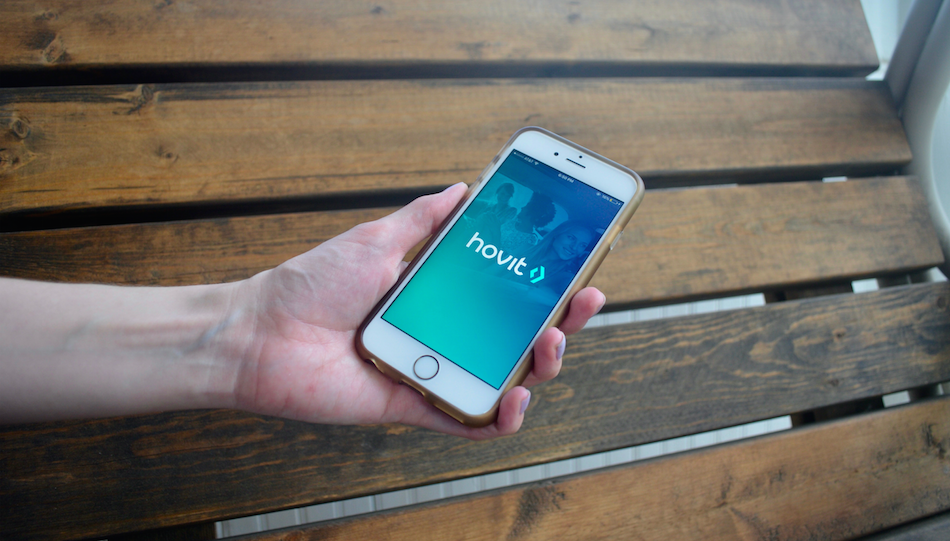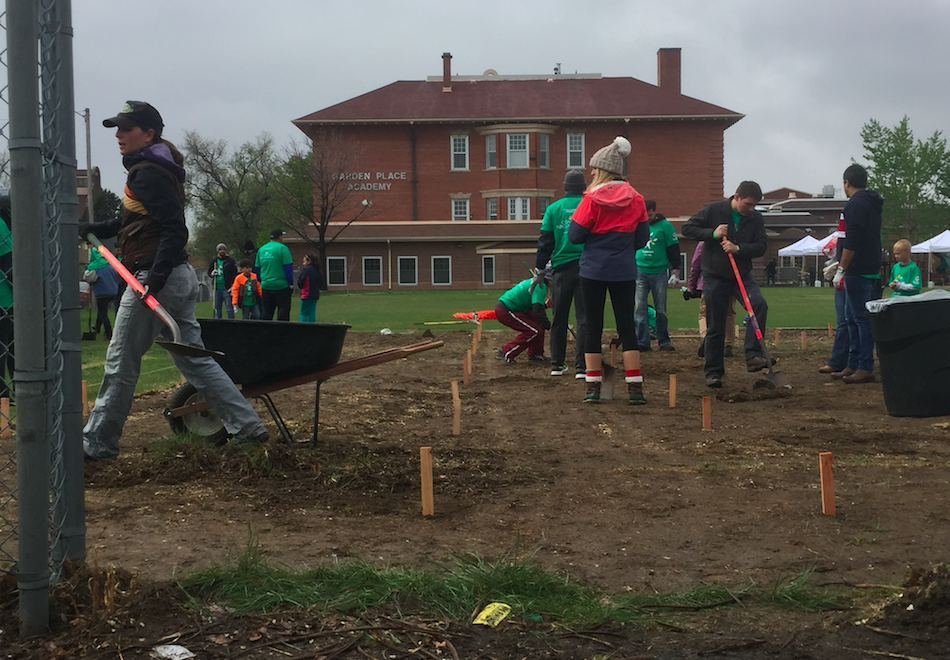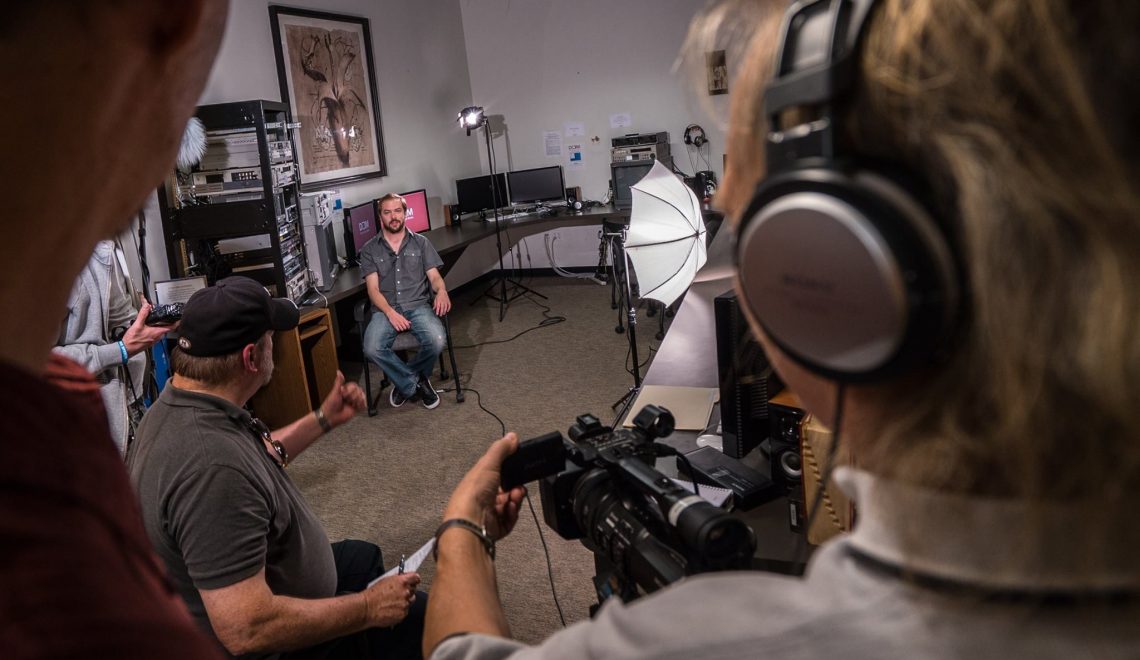Image: Comcast.
The Tomorrow Tour, a nationwide partnership between Comcast NBCUniversal and Technical.ly, visited six different cities over the past three months and has finally come to an end in Atlanta. Since January, the duo had been visiting cities all over the country to inspire and maintain startups and ideas.
Now that the last stop of the tour has come and gone, we wanted a place to gather all of our thoughts. So, here are the seven things we learned from the Tomorrow Tour. Also, make sure to keep an eye on Comcast NBCUniversal and Technical.ly’s social media for next year’s Tomorrow Tour dates.
1. Rapid Prototyping is the Way of the Future
This lecture, given by Google X co-founder Tom Chi, focuses on inventing and creating products quickly. One of the worst ways to hurt creativity is overthinking and Chi says that even the most seasoned innovators will fall prey to thinking too much and forgetting to get their hands dirty. The biggest thing to remember? The Scientific Method, of course. Chi urges innovators to remember that the method isn’t just researching but also involves testing. By moving toward the testing stage as quickly as possible, innovators won’t get bogged down in too many ideas.
"A cross-section of #Denver’s tech community discusses what makes it distinct" https://t.co/xSIJNbkFIP #tmrwtour16 pic.twitter.com/k5mcoDSnXt
— Technical.ly (@Technical_ly) February 11, 2016
2. Social Responsibility is Still Important
Startups answer the very important question of “so what?” and statistically do better and last longer than companies that seem to lack a point or purpose. While having an idea is a great start, it’s not enough. Innovators need to ask themselves who this idea could benefit and how they can structure it to help those in need. If your idea isn’t helping anybody or making something easier for people, it will be less likely to catch on. One of the most important steps is to define why the world needs your idea or product. If you can’t answer that question, it might be time to reformulate.
3. User Feedback is Key
One of the biggest mistakes many startups make is assuming they need to give away their product for free, at least in the beginning, in order to generate more users. They assume that generating a profit is a far off goal. However, this isn’t entirely the case. You should never undersell the value of your product or idea, and there is no shame in pricing it as such right from the get go. What this comes down to is engaging with your users. Reach out to the right publications and influencers and ask them to review your product. Then make sure you’re asking for feedback every step of the way. If you do this, you won’t have to settle for a free product.
Denver is the ultimate entrepreneur community - progressive environment fostered by local government #TMRWTOUR16 pic.twitter.com/su9jKUhDd7
— Downtown Denver (@DowntownDenver) February 4, 2016
4. Knowing How to Fund Your Project
Gone are the days where a startup’s only hope at funding was to approach a venture capital firm, pitch your idea and hope they said yes. There are so many ways to fund your idea now that it isn’t necessary to walk the traditional route, though it’s still not frowned upon. Many businesses are now using crowdfunding sites such as IndieGoGo and Kickstarter to fund their projects. While pitching your business to a venture capitalist is still one of the ways to get money — and probably the most money — it’s not going to work for every single startup. That’s OK. There are many ways to find funding nowadays. You just have to find the one that works for you.
5. Network, Network, Network
Remember back in college when networking was everything and it was your job to meet new people and, increasingly, try to sell them your personal brand? Guess what? That never goes away. Networking is a great place to meet new people who might fund your company, or even people who might help you run your company some day. However, always remember, as important as making connections may be, it’s even more important to maintain them. Never let a connection go cold and always feed it new ideas or opportunities. One interesting tip from this workshop is to only join conversations with an odd number of people. If you join a conversation with an even number of people, you’re more likely to be the third and fifth wheel that no one talks to.
6. How to Use a Workspace Effectively
A panel discussion that just wrapped up at #TMRWTOUR16 in Denver. pic.twitter.com/0RhRrv8nin
— Mike Jackson (@alrightmike) February 3, 2016
It’s no surprise that one of the hardest aspects of trying to get your startup rolling is finding an appropriate space to do so. A lot of people end up working out of their house, which takes a lot of motivation. Good news: If you’re founding a startup you probably already have a lot of motivation. However, it’s important to know some of your other options. One of the biggest options available to startups is a shared or coopted space. It’s cheaper and easier to maintain than standard offices and also means you’ll be surrounded by like-minded individuals and companies.
7. Get Creative with Your Business Model
Talking about revenue is usually something that many innovators shy away from because, again, linking back to our third point, there’s this myth that startups aren’t allowed to make money in their infancy. If you structure your business model in a way that is creative and works for you, it will be sure to work. One of the biggest tips from this seminar says consider devoting one of the branches of your company to being a 501(c)3 company so that you can apply for grants.
We hope you found some these boiled down points enjoyable and thought provoking. If you want to know more about any of the points made, simply follow the links. These will take you to the full Tomorrow Toolkit, which was used throughout almost all of the seminars in the tour.
One of the biggest takeaways from the Tomorrow Tour has to be to find what works for you even if it’s never been done before. Just because something has worked for hundreds of startups before you does not mean it’s right for you. Forge your own path and do what is right for your company.




